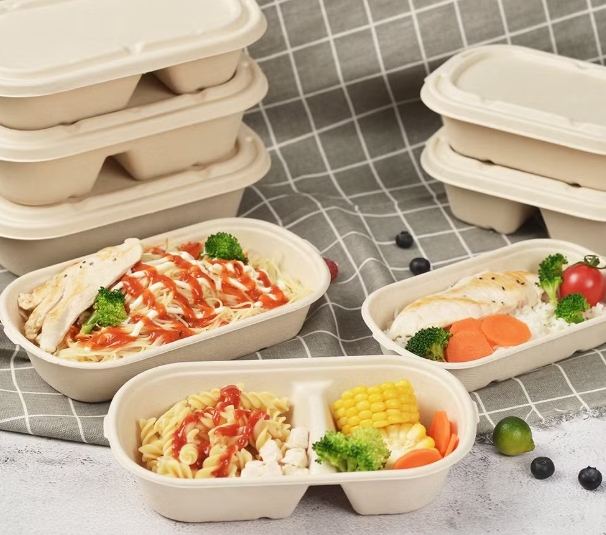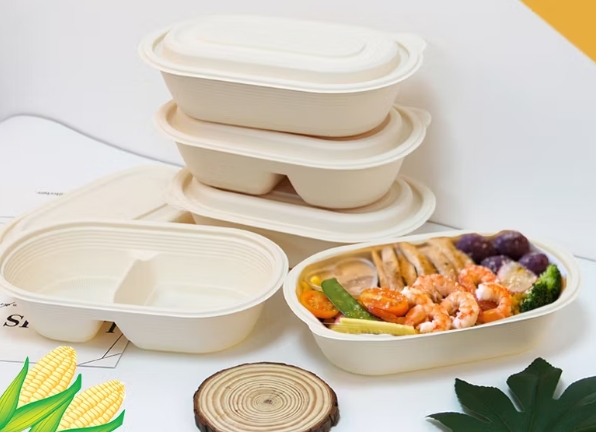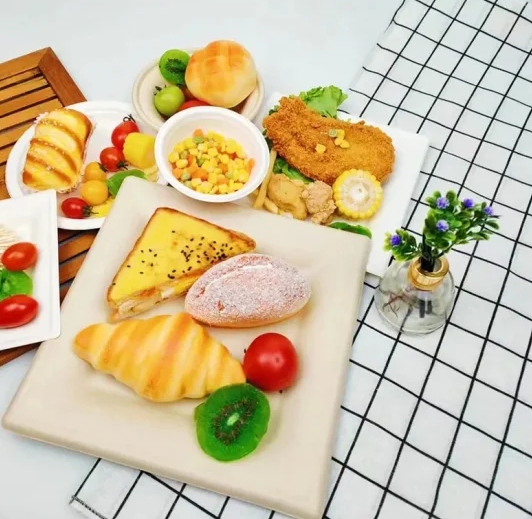
Content Menu
● Understanding Disposable Cheese Boards With Lids
>> What Are Disposable Cheese Boards With Lids?
>> Why Choose Eco-Friendly Options?
● Materials Used in Eco-Friendly Disposable Cheese Boards With Lids
>> Bamboo
>> Balsa Wood
>> Sugarcane Fiber (Bagasse)
>> Recycled Paperboard
● Features and Benefits of Eco-Friendly Disposable Cheese Boards With Lids
>> Convenience and Hygiene
>> Sustainability
>> Aesthetic Appeal
>> Versatility
● Popular Types of Eco-Friendly Disposable Cheese Boards With Lids
● How to Choose the Right Disposable Cheese Board With Lid
>> 1. Assess Your Needs
>> 2. Check for Certifications
>> 3. Consider Customization
>> 4. Evaluate Lid Design
>> 5. Review Disposal Options
● Use Cases for Eco-Friendly Disposable Cheese Boards With Lids
>> Catering and Events
>> Take-Out and Delivery
>> Gifting
>> Picnics and Outdoor Gatherings
● The Environmental Impact of Disposable Cheese Boards With Lids
>> Reducing Plastic Waste
>> Supporting Renewable Resources
>> Compostability and Biodegradability
● Challenges and Considerations
>> Availability of Commercial Composting
>> Cost
>> Performance
● Future Trends in Disposable Cheese Boards With Lids
>> Innovation in Materials
>> Increased Customization
>> Greater Consumer Awareness
● Conclusion
● FAQ
>> 1. What materials are commonly used for eco-friendly disposable cheese boards with lids?
>> 2. Are all disposable cheese boards with lids compostable at home?
>> 3. Can disposable cheese boards with lids be customized with logos or designs?
>> 4. Are eco-friendly disposable cheese boards with lids suitable for wet or oily foods?
>> 5. How do I properly dispose of eco-friendly disposable cheese boards with lids?
In recent years, the demand for sustainable and convenient food presentation solutions has surged, especially in the catering and hospitality industries. One product that has gained significant attention is the disposable cheese board with lid. These boards provide a stylish and practical way to serve cheese, charcuterie, and appetizers, while also addressing the growing need for eco-friendly options. This article explores the availability, materials, benefits, and considerations of eco-friendly disposable cheese boards with lids, guiding you through their features and helping you make informed choices for your next event or business need.

Understanding Disposable Cheese Boards With Lids
What Are Disposable Cheese Boards With Lids?
Disposable cheese boards with lids are single-use serving trays specifically designed for presenting cheeses, meats, fruits, and other appetizers. The addition of a lid offers protection, preserves freshness, and makes transportation easier. These boards are particularly popular for catering, take-out, events, and picnics, where convenience and hygiene are paramount.
Why Choose Eco-Friendly Options?
The environmental impact of single-use plastics and non-biodegradable materials has led to a shift toward sustainable alternatives. Eco-friendly disposable cheese boards with lids are crafted from renewable, biodegradable, or compostable materials, reducing landfill waste and supporting responsible consumption.
Materials Used in Eco-Friendly Disposable Cheese Boards With Lids
Bamboo
Bamboo is a highly renewable resource, growing rapidly without the need for pesticides or fertilizers. Bamboo disposable cheese boards are sturdy, lightweight, and naturally biodegradable. They often feature a rustic appearance and can be commercially composted, making them an excellent choice for eco-conscious consumers.
Balsa Wood
Balsa wood is another popular material for disposable cheese boards. It is lightweight, strong, and compostable in commercial facilities. Balsa wood boards offer a smooth finish and can be elegantly presented at upscale events or casual gatherings.
Sugarcane Fiber (Bagasse)
Sugarcane fiber, or bagasse, is a byproduct of sugar production. It is molded into sturdy trays and containers, including cheese boards with lids. Sugarcane-based products are biodegradable and compostable, breaking down naturally without leaving harmful residues.
Recycled Paperboard
Some disposable cheese boards are made from recycled paperboard, often combined with a moisture-resistant lining. These boards are suitable for dry or semi-moist foods and are fully recyclable or compostable, depending on the finish.
Features and Benefits of Eco-Friendly Disposable Cheese Boards With Lids
Convenience and Hygiene
The primary advantage of disposable cheese boards with lids is their convenience. They eliminate the need for washing and storage, making post-event cleanup effortless. The lid protects the food from contaminants, preserves freshness, and allows for easy stacking and transportation.
Sustainability
Eco-friendly disposable cheese boards with lids are designed to minimize environmental impact. They are made from renewable resources, are biodegradable or compostable, and often require less energy to produce compared to traditional plastic or ceramic trays.
Aesthetic Appeal
Modern eco-friendly cheese boards are crafted to look elegant and natural. Materials like bamboo and balsa wood provide a rustic yet sophisticated presentation, enhancing the visual appeal of your food display.
Versatility
These boards are available in various shapes and sizes, suitable for individual servings, shared platters, or even as stylish take-out containers. Some options can be customized with branding or unique designs, adding a personal touch to your event or business.
Popular Types of Eco-Friendly Disposable Cheese Boards With Lids
| Material | Key Benefits | Compostable/Biodegradable | Typical Use Cases |
| Bamboo | Sturdy, natural look, renewable | Yes | Catering, events, upscale gatherings |
| Balsa Wood | Lightweight, elegant, compostable | Yes (commercial) | Cheese counters, specialty stores, take-out |
| Sugarcane Fiber | Durable, moisture-resistant | Yes | Take-out, picnics, casual and formal events |
| Recycled Paper | Cost-effective, customizable | Yes (varies by finish) | Large events, branded catering, eco-conscious use |
How to Choose the Right Disposable Cheese Board With Lid
1. Assess Your Needs
Consider the type of event, the number of guests, and the kinds of foods you plan to serve. For upscale events, opt for bamboo or balsa wood boards. For casual gatherings or large-scale catering, sugarcane or recycled paper options may be more suitable.
2. Check for Certifications
Look for certifications such as compostability, biodegradability, or FSC (Forest Stewardship Council) approval. These certifications ensure that the product meets recognized environmental standards.
3. Consider Customization
If branding or personalization is important, choose suppliers that offer custom printing or engraving on the disposable cheese boards with lids.
4. Evaluate Lid Design
Ensure the lid fits securely to protect the food and facilitate easy transport. Some lids are clear for visibility, while others are opaque for privacy and insulation.
5. Review Disposal Options
Verify whether the boards and lids are compostable in home or commercial facilities, or if they should be recycled. Proper disposal maximizes the environmental benefits of your choice.

Use Cases for Eco-Friendly Disposable Cheese Boards With Lids
Catering and Events
Eco-friendly disposable cheese boards with lids are ideal for weddings, corporate events, and parties, where large numbers of guests require convenient, attractive, and hygienic food presentation.
Take-Out and Delivery
Restaurants and specialty food shops use these boards to package cheese and charcuterie selections for take-out or delivery, ensuring freshness and visual appeal upon arrival.
Gifting
Disposable cheese boards with lids make excellent gifts, especially when paired with gourmet cheeses, cured meats, and accompaniments. The eco-friendly packaging adds value and aligns with modern gifting trends.
Picnics and Outdoor Gatherings
For picnics, outdoor concerts, or family outings, these boards offer a practical solution for serving and sharing food without the hassle of cleanup.
The Environmental Impact of Disposable Cheese Boards With Lids
Reducing Plastic Waste
By choosing eco-friendly disposable cheese boards with lids, you help reduce reliance on single-use plastics, which are a major contributor to environmental pollution.
Supporting Renewable Resources
Materials like bamboo, balsa wood, and sugarcane are rapidly renewable, requiring less land and water compared to traditional wood or plastic production.
Compostability and Biodegradability
Properly disposed of, these boards break down into natural materials, enriching soil and supporting a circular economy. However, check local composting facilities, as some products require specific conditions to decompose fully.
Challenges and Considerations
Availability of Commercial Composting
While many eco-friendly disposable cheese boards with lids are compostable, some require commercial composting facilities, which may not be available in all areas. Always check local disposal options to ensure proper end-of-life treatment.
Cost
Eco-friendly options can be slightly more expensive than conventional plastic trays, reflecting the higher cost of sustainable materials and production processes. However, the environmental benefits and positive brand image often justify the investment.
Performance
While most bamboo, balsa wood, and sugarcane products are sturdy and moisture-resistant, extremely wet or oily foods may require additional liners or greaseproof paper to maintain integrity.
Future Trends in Disposable Cheese Boards With Lids
Innovation in Materials
Manufacturers are continually developing new materials and coatings that enhance performance while maintaining compostability and biodegradability.
Increased Customization
Advances in printing and design allow for greater customization, helping businesses differentiate their offerings and create memorable experiences.
Greater Consumer Awareness
As consumers become more environmentally conscious, demand for sustainable food packaging solutions, including disposable cheese boards with lids, will continue to grow.
Conclusion
Eco-friendly disposable cheese boards with lids offer a practical, stylish, and responsible solution for serving cheese, charcuterie, and appetizers at events, in restaurants, and for take-out. Made from renewable materials such as bamboo, balsa wood, sugarcane, and recycled paper, these boards minimize environmental impact while providing the convenience and hygiene required in modern food service. While there are some considerations regarding cost and composting infrastructure, the benefits far outweigh the challenges, making them an excellent choice for anyone seeking to combine sustainability with functionality.

FAQ
1. What materials are commonly used for eco-friendly disposable cheese boards with lids?
Eco-friendly disposable cheese boards with lids are typically made from bamboo, balsa wood, sugarcane fiber, or recycled paperboard. These materials are renewable, biodegradable, and often compostable, making them ideal for sustainable food service.
2. Are all disposable cheese boards with lids compostable at home?
Not all disposable cheese boards with lids are compostable at home. Some, especially those made from balsa wood or with certain coatings, require commercial composting facilities to break down properly. Always check the product specifications and local composting options.
3. Can disposable cheese boards with lids be customized with logos or designs?
Yes, many suppliers offer customization options for disposable cheese boards with lids. You can add logos, artwork, or personalized messages, making them perfect for branded events, corporate gifting, or special occasions.
4. Are eco-friendly disposable cheese boards with lids suitable for wet or oily foods?
Most eco-friendly disposable cheese boards with lids are designed to be moisture-resistant and can handle semi-moist or oily foods. However, for very wet foods, it is advisable to use an additional liner or select boards specifically rated for grease resistance.
5. How do I properly dispose of eco-friendly disposable cheese boards with lids?
To maximize environmental benefits, dispose of these boards in composting facilities if available. Some boards can be composted at home, while others require commercial composting. If composting is not an option, check if the boards are recyclable according to local guidelines.

















